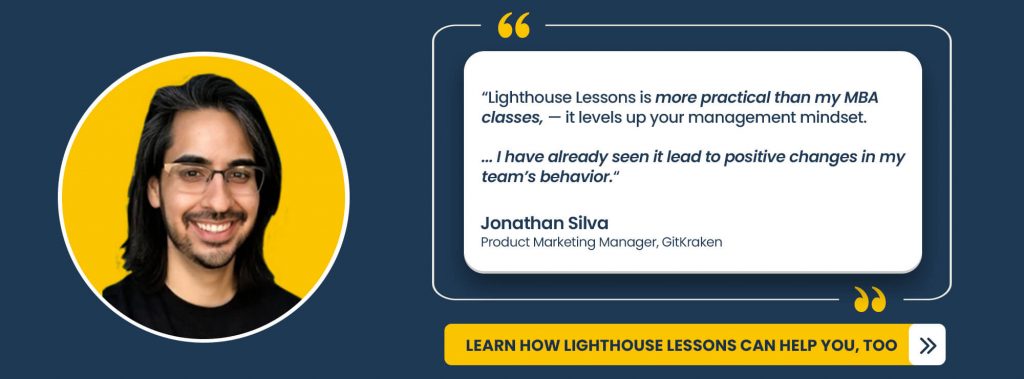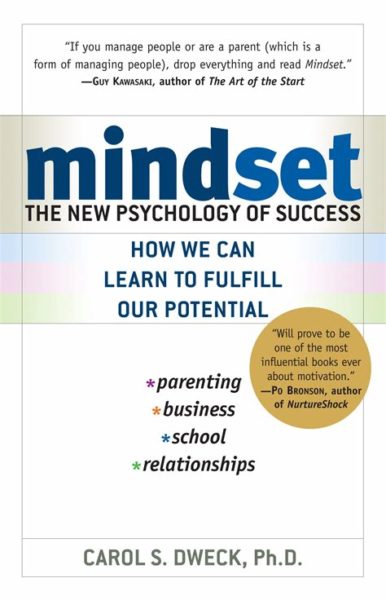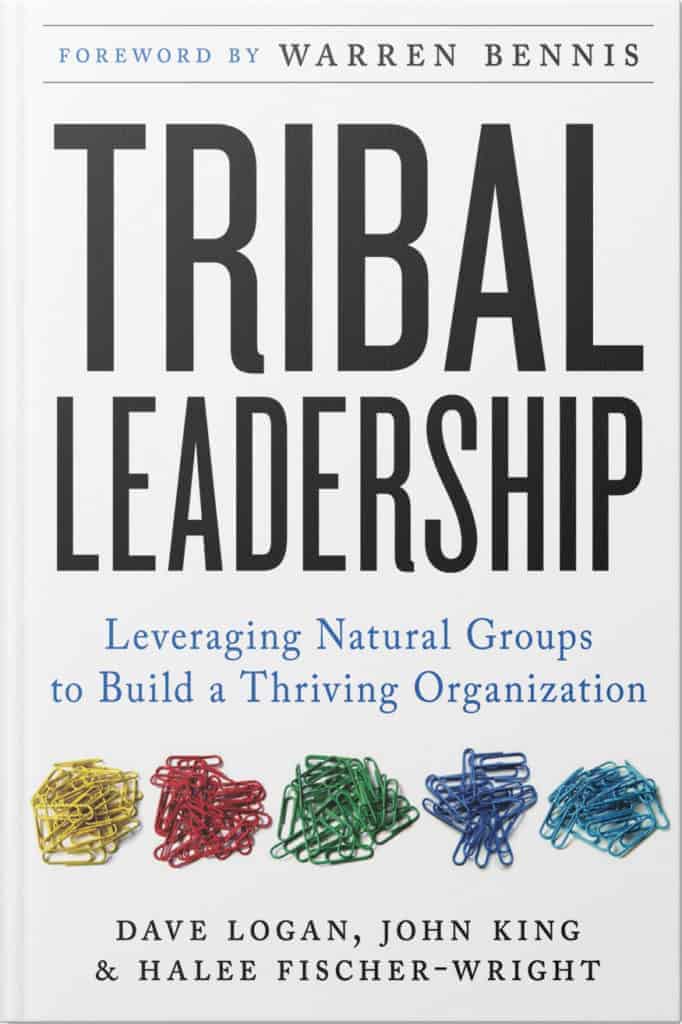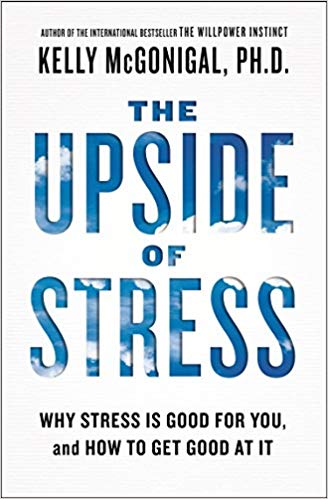"Why, then, 'tis none to you, for there is nothing either good or bad, but thinking makes it so." - Hamlet, Act 2, Scene 2, by William Shakespeare
Your mind is more powerful than you realize. Shakespeare knew it over 400 years ago, as referenced here in Hamlet, and many of us relearn it today.
As I've been a regular reader throughout my career, a common powerful thread has emerged: over and over I learn how the mind can control much more than I realized. You really can learn how to change your mindset about many things.
It started with just a single idea of the growth mindset we've quoted on the Lighthouse blog many times, and has quickly spread to other topics until I realized the list of things you *cannot* control is shorter than the list of things you can.
Today, I'd like to share with you a number of books and works that helped open my eyes to this, and how you can use them to help you in your life, too.
How to Change Your Mindset to Improve Your Life and those Around You
My goal for you today is to get you to take one step forward. Just grab one of these topics, or pick one of the books mentioned, that would help you most now. You may be surprised how a few subtle changes to your mindset can make a big difference, especially in times like today.
From there, I hope you'll see how much more is possible than you realized.
Table of Contents:
- How to Change Your Mindset to Master New Skills
- How to Change Your Mindset to Build an Amazing Culture
- How to Change Your Mindset to Thrive Under Stress
- How to Change Your Mindset to Improve Your Health
- How to Change Your Mindset about Your Habits
- How to Change Your Mindset to be Happier
1) How to Change Your Mindset to Master New Skills
It all starts with Carol Dweck's best-selling book exploring the importance of a growth mindset.
Whether you read her book, or watch her TED Talk, embracing the growth mindset creates an important mental shift: anyone can learn any skill.
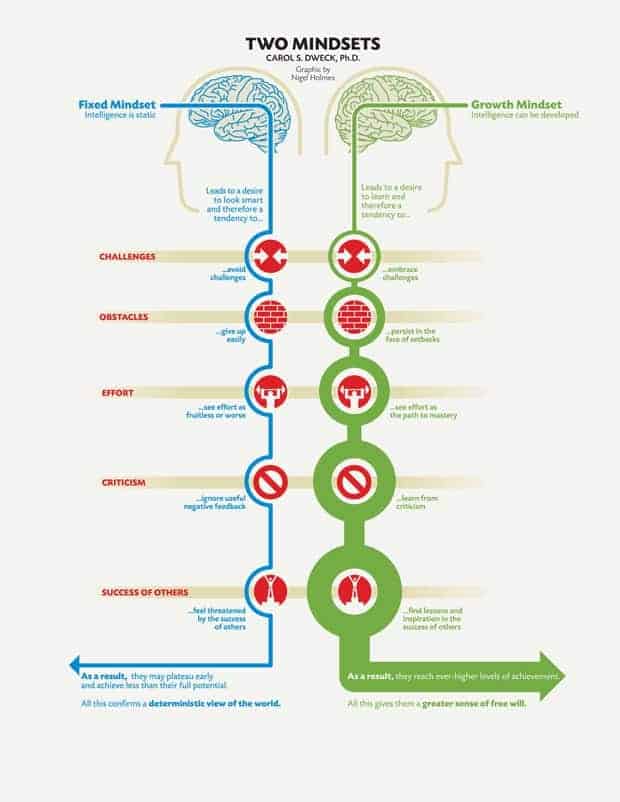
This is super important for you to embrace as a manager:
- For You: Becoming a manager is a career change. You'll only succeed if you embrace the idea that you can learn any new skills needed to become a great leader.
- For Your Team: It's easy for people to get in a rut doing the same things, or give up on things they're not good at. As their manager, it's important you get them to stop any negative self-talk, and help them learn to build new skills so they can advance.
When you live out a growth mindset, you and your team can take on any challenge, and you have no fear of the unknown. Without it, you'll grow stagnant, and hide from challenges. This will hold back your career and the potential of your team.
Further Reading:
To help you build a powerful growth mindset, read these posts:
- Learn these 3 key mindsets for great managers.
- If you're a new manager, follow this guide to succeeding as a new manager.
- For your team, learn about how you can use Task Relevant Maturity to support them when they need it, and be hands off when they don't.
- Then, embrace Task Relevant Maturity to help you with areas of weakness, too.
- Finally, help your people grow by learning the answer to the 3 most common questions managers have about career development plans.
2) How to Change Your Mindset to Build an Amazing Culture
Every leader building an organization wants a great culture. Yet, often you end up with a culture instead of intentionally create one.
The authors of Tribal Leadership show how the words we use signal some of the most important things about your culture, and most importantly, how changing the words you use can take your culture to the next level.
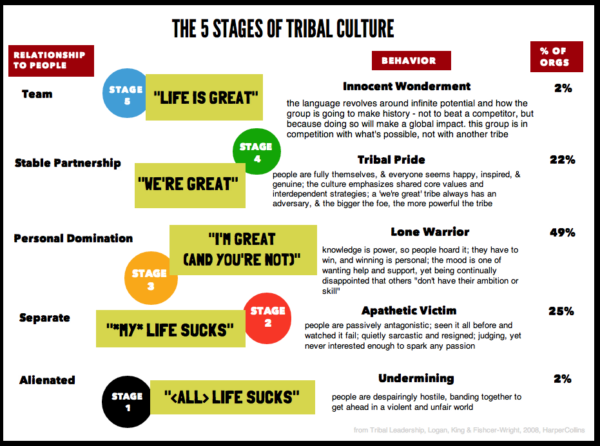
As you can see in this great table, the way your team describes working together reveals how the culture is at your company. And once you know what level you're at, you can work at changing it.
So as you build your culture and think about how to intentionally build it, realize that the words you choose matter *a lot*. Even simple changes can make a big difference.
Example: The Power of Assuming Positive Intent
We've used this quote many times of the Lighthouse blog, and now is another time to remind you about what it really means:
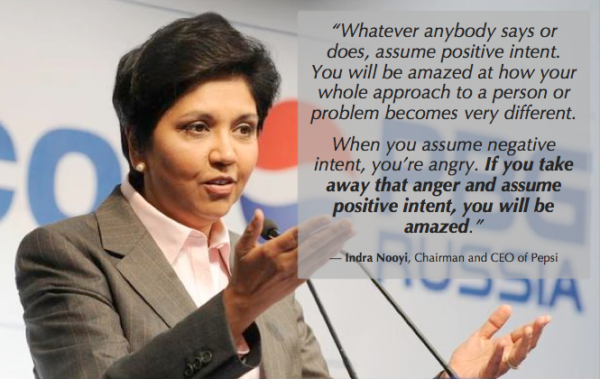
Imagine a situation with your team: A project is late, and you really need it delivered. You could react in a few ways:
- Angry: Direct message your team member in chat, or call them up and demand, "Where is the project?!? It's late!"
- Frustrated: In an accusatory tone, ask your team, "Why is this project late?!?"
- Assuming Positive Intent: "Hi Joe, how are things going? Want to check in if you need any help with the project as we need it today?"
See yourself saying each of those lines. Now, think about how it feels to be asked about the project in each of those ways.
Which way is more likely to get a positive response from your team? How would you feel if your manager is jumping all over you when you're working extremely hard to finish, or are dealing with a crisis?
This is why you assume positive intent, and approach problems with words that reflect that intent.
Building a great culture starts with your example, and a huge part of that is the words you choose. The more intentional you are about them, the more likely you are to create the culture you aspire to.
Further Reading:
To learn how to change your mindset to create a great company culture consider these:
- The key to great company culture starts with you and your example.
- If you want to bring about a change in your culture, start here.
- To instill and reinforce new values on your team, make sure you embrace the power of repetition.
- Learn the secrets to Netflix's amazing culture from our takeaways from their head of people, Patty McCord here.
- If you're a founder, be mindful of the ways that founders can wreck their culture.
3) How to Change Your Mindset to Thrive Under Stress
Stress is bad, right? Not quite.
When I read Dr. Kelly McGonigal's book, The Upside of Stress, I was amazed to finally see a mystery answered: Why do some people thrive under pressure and others struggle?
It turns out, it's all in your head. Really.
*You* decide if stress is good or bad.
In Dr. McGonigal's research, she found that depending on how you think about stress, your body will react differently; your body will literally release *different chemicals* which help or hurt your body.
Think about a pro sport you like or are familiar with. Now imagine two players in a key moment in the game:
- When the player is thriving under stress, how do they look? Calm, cool, relaxed, focused.
- When the player is "choking" under stress, how do they look? Tense, up tight, worried, jittery.
These differing reactions to stress are exactly because of the different chemicals each of the player's body. They can be under the same stress: game on the line, crowd cheering or silent, no time left, etc and handle it completely differently.
In either case, it depends on your relationship with stress.
And best of all, that means that to change this, all you need to do is work on your mindset heading into the stress.
In fact, in one of the experiments shared in the book, a simple phrase reinforcing that everyone taking a test was a good test taker improved exam scores for all participants.
Further Reading:
If you want a better relationship with stress, definitely read The Upside of Stress, then check out our posts on:
- How to use mindfulness at work to be a better manager
- Learn how to address workplace stress with these 8 tips
- Listen to Jason Evanish's interview on the Crazy Wisdom podcast about stress and leadership
- Sometimes you need to work on knowing when you're stressed so you still are working at your best, which is a key part of boosting your self-awareness as a leader.
- Check out our interview with leadership coach Brian Wang on this topic and more.
4) How to Change Your Mindset to Improve Your Health
I saved this one for a little later on the list, because even I had a hard time believing this.
Yet, my skepticism turned to belief when I read about the double-blind, high quality research performed at Harvard Medical School and premier hospitals in Boston proved it: Yes, your mind can help significantly improve your health.
In Dr. Herbert Benson's book, The Relaxation Revolution, he shares specific research on how your mind can help you heal and improve a variety of common health issues, including:
- Heart disease and high blood pressure
- Chronic pain and headaches
- Anxiety and depression
- Nausea
- PMS and menopause symptoms
- Insomnia
- Heart palpitations
- Parkinson's disease
And how is this done? Through a combination of the power of believing it can work, visualizing the results, and following his relaxation response method, you can make a big difference on your health in just 10-20 minutes a day.
You can control your epigenetics.
Building on this idea of how much words have power, I found this talk about how words affect us very complimentary to Dr Benson's book and research:
A few keys from the video:
- Stress hormones: As we learned from Dr. McGonigal the damages of stress if you fear it can be great. This video illustrates it further beyond just performance in sports or at work and into physical effects.
- Placebo effect: Dr. Benson's research dives deep into the placebo effect as well, which interestingly is showing that placebos are becoming *more effective* in recent years.
- Epigenetics: Also in Dr. Benson's book is discussion about how we have many genes that can be turned on or off. His theory is that his Relaxation Response helps change whether some genes are on or off.
With these concepts, we're wading a bit outside the realm of great leadership and management, but it's so powerful I feel I would be remiss to not share it with you in case it can help you or a loved one.
I've personally seen positive improvements in how quickly I fall asleep by trying this approach, and seen how the power of belief combined with this approach can help someone recover from a major stroke.
5) How to Change Your Mindset about Your Habits
Habits and routines are powerful. The human mind loves the groove of a repeatable pattern, whether it's a good (hitting the gym after work) or bad one (having too much wine after dinner).
Especially if you have a fixed mindset, it's easy to fill like your habits "are just who I am."
This couldn't be further from the truth.
As James Clear lays out in his powerful book, Atomic Habits, there is a clear process for both making new habit *and* breaking bad habits.
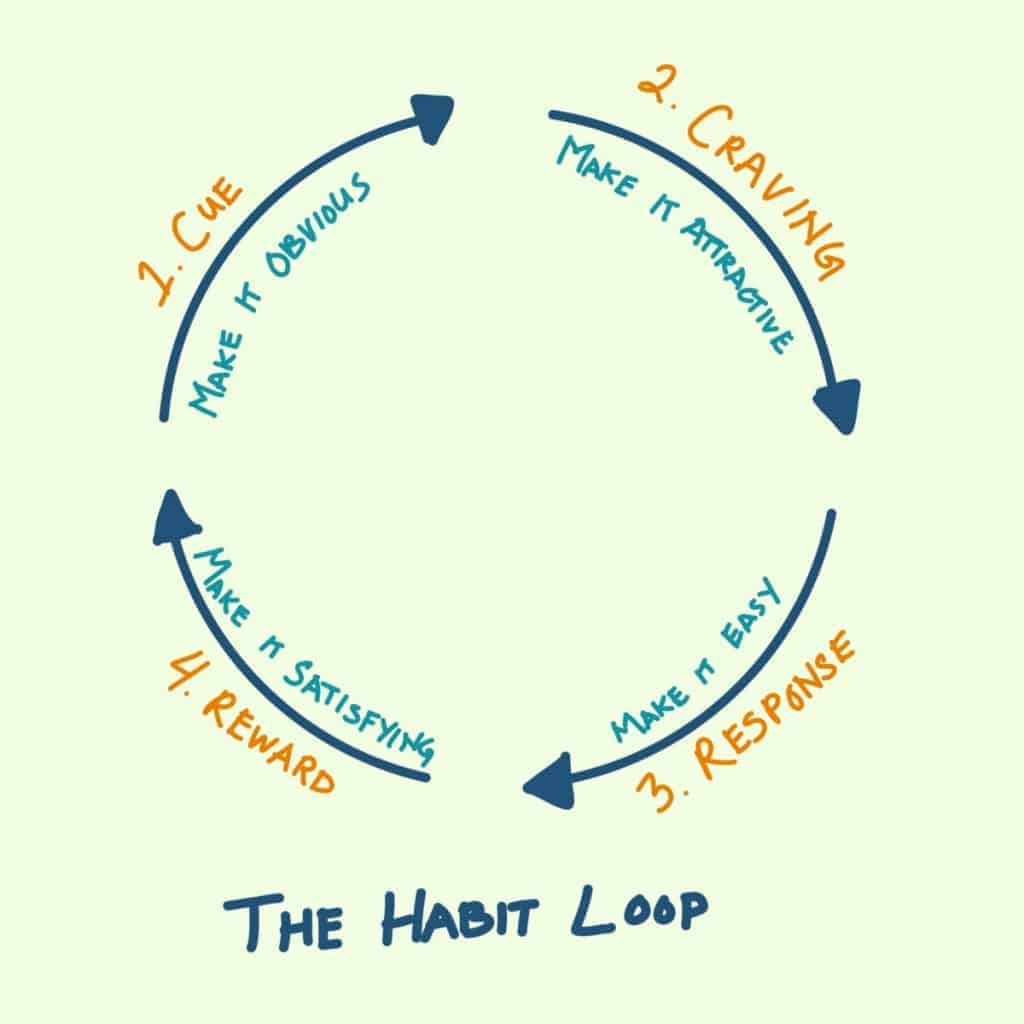
As the image above shows, a simple pattern can help you create any new habit you want.
This means the next time you recognize a bad habit, something that you do without thinking, by using the approaches in Atomic Habits, you can break it. And when you want to change something about yourself, start a new habit like going to the gym, reading daily, or making dinner with your kids, you also now know how to do that.
Knowledge is power. Build and break habits to create exactly the life and outcomes you want.
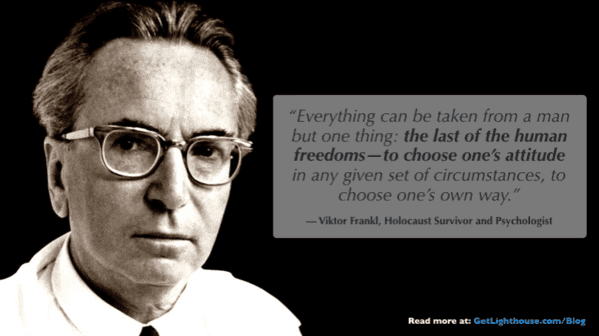
6) How to Change Your Mindset to be Happier
We all have emotions and feelings. Sometimes bad things happen, even when we try our best.
It's easy to let that get you down. Feeling these things is normal.
However, once you recognize these feelings, you can change your mood.
This is why self-awareness is so important; you can then prevent bigger problems from happening by changing course first.
Know who you are, and tell others, too.
I know when I get stressed or frustrated, I can be curt and overly critical. It's a defense mechanism I learned when I was younger.
However, because I know it happens, I can be more aware of it and catch it sooner. I can also tell my team that if it happens, I want them to let me know so I address it, as well as so they can know it's probably not really about them or their work.
This of course takes a lot of trust and psychological safety with your team to talk about things like this. However, when you lead the way on something like this, it makes your team more likely to share the same. This then helps your entire team work better together since there are going to be tough days for everyone at different times.

How to turn around your mood
In many cases, we cannot control the hand we're dealt. So much of life is beyond our control. So even in the best of cases, there are still curve balls we all face.
When that happens, realize you have the power to change how you feel, even if you cannot change the circumstances you face.
If you're feeling depressed or unhappy, there's a few things you can do to immediately change it:

1) Take a walk in nature
In a study by the University of Derby in the UK, where participants spent time in nature each day for 30 days found all of these benefits:
- "The number of people reporting their health as "excellent” increased by 30%”
- "Children showed increases in self-esteem.”
- Other benefits included, "more life satisfaction, positive affect and vitality at levels associated with established predictors of satisfaction, such as personal income.”
Rather than powering through a tough day, consider stepping away to take a walk to refresh yourself.

2) Use a Gratitude Journal
Dr. Robert A. Emmons of the University of California, Davis, and Dr. Michael E. McCullough of the University of Miami have studied gratitude extensively, and their findings are pretty amazing.
In one study, they split people into 3 groups: one group wrote about positive things they were grateful for, another wrote about irritations and things that bothered them, and the third wrote about general events.
From there they found:
"Those who wrote about gratitude were more optimistic and felt better about their lives. Surprisingly, they also exercised more and had fewer visits to physicians than those who focused on sources of aggravation.”
All that from taking 2 minutes a day to write down something you're grateful for? It's a no-brainer to use this when you only have a minute to reset or boost your mood.
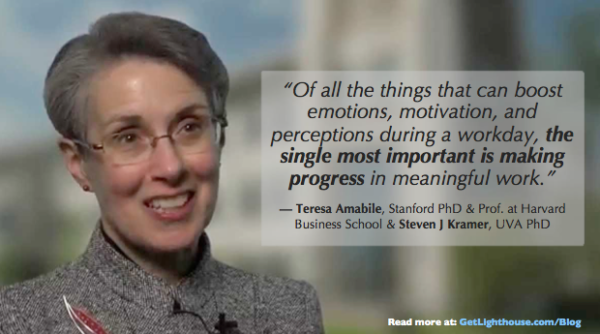
3) Make progress on something that matters
One of the easiest ways I find myself getting frustrated at work over the years has been when a project isn't going well. Whether we've stalled out, or even backslid, or simply mired in short term problems in the way of a key big project, it's easy to feel like progress isn't happening.
If you work at a big company, this can also manifest in feeling like you're trapped in a project that never ends and has 100 too many meetings.
Once again, you have more power than you think.
As Teresa Amabile's research shows, making progress has a huge, long term impact on your happiness.
The best thing you can do is find the smallest thing you can do to make some progress on your project. Maybe it's a decision can finally be made, or you can work on a different part of it that isn't stalled.
Or, find something else important you can make progress on that's unrelated. As long as it still is important to you, it can relieve many of your feelings.
Further Reading:
As you embrace changing your mindset when emotions get the best of you at work, consider these links:
- Battling unresolved emotions in your subconscious? This video shows you how to write them away.
- Learn more about the link between gratitude and happiness here.
- Use a positive mindset to be a better leader with these approaches.
- Develop mental toughness and help your team thrive with these lessons.
- Boost the mood of your team members by getting better about giving more praise to them. Use any of these 21 approaches.
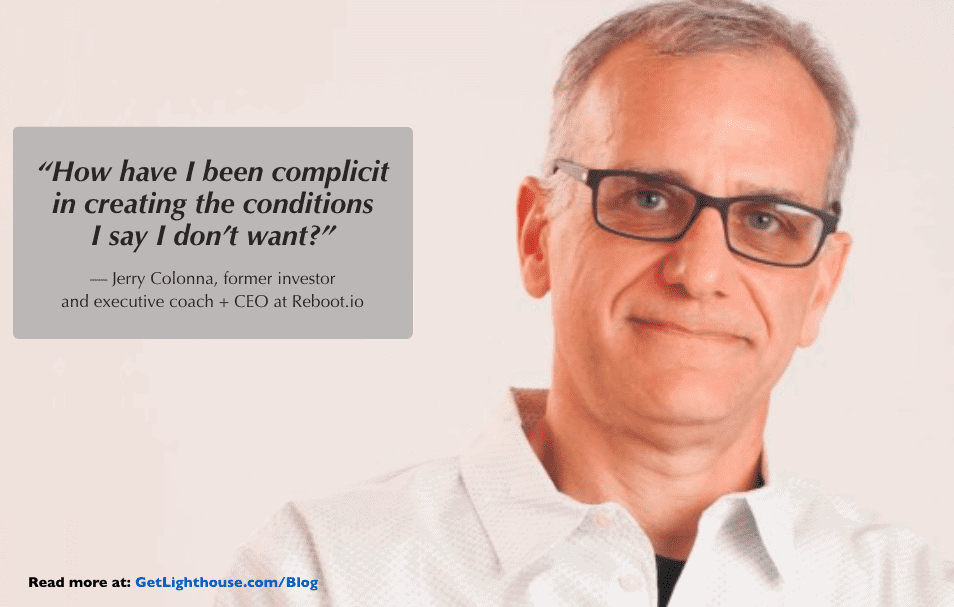
Conclusion: You have more power than you realized
As Jerry Colonna so astutely asks in his great book for founders, Reboot, you have to look at how the things that happen around you are because of you.
It's not about blame, or even responsibility. The amount doesn't matter.
What matters is recognizing the control you have. As Carl Jung remarked:
"Until you make the unconscious conscious, it will direct your life and you will call it fate."
Look at what we just saw. The words you choose, and your mindset can allow you to:
- Learn any new skill and show your team growth is always a possibility
- Transform the culture of your company and team by focusing on the words you use
- Turn stress from a problem to a benefit for you
- Reduce and eliminate a wide variety of health issues
- Have agency and power over your habits, to break bad ones and build great new ones
- Become more consistently happy, and flip your mood when you're unhappy, frustrated, or angry
All it takes is your awareness that these are possible, and making the decision to take the small steps that make a big difference.
Your mind is as powerful as you choose to make it. With the books and research we've discussed, you now have a roadmap to take control of your health, your leadership, and your life.
Want to build up your management skills? Lighthouse Lessons can help you.
Our bite size, highly actionable programs are perfect for even the busiest of managers. Become a better leader like Jonathan Silva did by learning more and signing up here.
